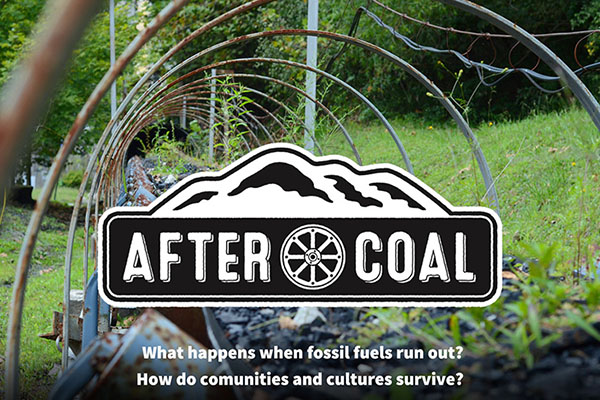Alumna Rebecca Jones graduated from Appalachian State University in 2009 with a Bachelor of Science in Communication - Electronic Media/Broadcasting degree. After graduating, she stayed to earn a master’s degree in Appalachian studies in 2011.
She is now an apprentice editor with filmmaker Ken Burns at Florentine Films, where she organizes footage and music for editors to work with. She is currently working on the filmmaker’s country music project.
“I love exploring stories I find interesting and sharing them visually with others. I believe sharing stories in any medium is a powerful practice that allows us to gain understanding that will hopefully lead to positive change for our communities,” Jones said.
Her involvement in the research, videography and editing of “After Coal,” a documentary that draws parallels between coal mining towns in Wales and Appalachia, helped her get the job, she said. The feature-length film was created through the university’s Center for Appalachian Studies.
RELATED: Documentary ‘After Coal’ premieres in U.S. and U.K. film festivals
“It is an honor to be involved with a project that is so invested in creating positive change in the communities it focuses on. The biggest lesson for me was learning how to use a media project to begin difficult conversations in hopes of finding solutions in the dialogue afterward,” Jones said of “After Coal.”
Jones also contributed to the film’s soundtrack with Appalachian studies classmate Trevor McKenzie ’10 ’12. They adapted an Appalachian gospel song called “Looking for the Stone” for fiddle, banjo, guitar and cajón.
Why Appalachian?
Jones’ mother is an Appalachian alumna and her parents loved the Appalachian folk culture, so she already felt at home in Boone when she came to Appalachian as an undergraduate student. During her time at Appalachian, she received the N.C. State Employee Credit Union’s “People Helping People” scholarship, the Ray Wilkinson Communication 4-H scholarship, the Anne and Alex Bernhardt Appalachian Music scholarship, and the Cratis Williams Memorial Fellowship in Appalachian Studies. These scholarships allowed her to finish college and graduate school debt-free and begin a freelance videography business.
“Having access to challenging, diverse opportunities at Appalachian while being engaged in the surrounding community, I think, allowed me to feel grounded yet free to grow. I felt prepared to step out into the wider world when I graduated with a skill set, a portfolio of work and a community of people I could use to navigate the places I wanted to explore,” Jones said.
Jones appreciated her professors in the Department of Communication because their years of industry experience translated into effective teaching. When she decided to pursue a master’s degree in Appalachian studies, she appreciated the interdisciplinary nature of Appalachian’s program.
“I took courses from several departments, which allowed me to interact with folks that had different skill sets and perspectives from my own. Much of the course work was also project-based, which allowed me to explore my interests freely,” Jones said.
As part of her graduate work, Jones interned with Appalshop in Whitesburg, Kentucky. In this role, she helped organize and prepare for a music festival, Seedtime on the Cumberland. She also worked with Mimi Pickering to edit short videos for the Making Connections News website, a multi-media platform for highlighting opportunities and challenges for building a stronger economy and healthy future for Appalachia’s people and land.
Jones recommends Appalachian for students interested in both Appalachian studies and media production.
“The W. L. Eury Appalachian Collection in Belk Library is a vital resource for folks interested in the region of Appalachia, and there is a state-of-the-art broadcast media building with the latest technology for communication students to learn with,” she said.
What do you think?
Share your feedback on this story.
What happens when fossil fuels run out? How do communities and cultures survive?














